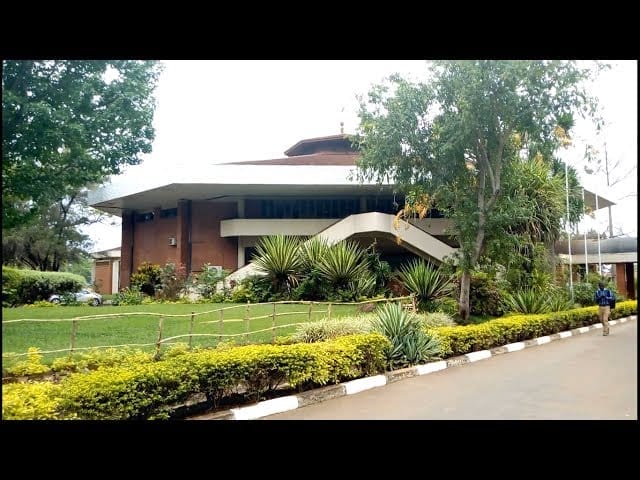I remember press freedoms, lack of it, under six presidents
16“What shall we do to these men? For, indeed, that a notable miracle has been done through them is evident to all who dwell in Jerusalem, and we cannot deny it. 17But so that it spreads no further among the people, let us severely threaten them, that from now on they speak to no man in this name.” — Acts 4:16-17
Of all the development projects Malawi undertook during the first 30 years of Malawi’s Independence, was the establishment of the University of Malawi. I am most happy about the University because the institution has graduated professionals in agriculture, humanities, law, medical from Bunda, Chancellor College, Kamuzu College of Nursing, Kamuzu College of Medicine, and Polytechnic (changes have been made to their names). In their individual and sometimes collective ways, the professionals have paved, or attempted to create the path to Press Freedom throughout Africa that was called for at the 1991 Windhoek Press Freedom Conference.

While there are many Malawians who fancifully believe that we are there, there is press freedom and association in the country; we are far, far, far away. This is because the government or cronies near the vortex of power are still imprisoning journalists who are always simply just doing their jobs. This year alone Gregory Gondwe and MacMillan Mhone have been thrown into the slammer. In the past, journalists lost their lives in mysterious car accidents or while in prison. Then there are a whole lot more journalists who have either ditched the profession or moved to foreign lands. Many journalists claim to fear royal political party operatives. Then there is the group of journalists that are removed from social media groups. The sins by these journalists to earn the removal badges of dishonor: using their constitutional right to express their opinions. But as with Kamuzu Banda, these social media gurus cannot utter their stupid nonsensical opposing views. The boot is used to kick such vernim.
Malawi oh my Malawi, you are soon to be 60 years, there is the dire need for constitutional laws to be breathed into life for every Malawian! I am here to highlight moments for press freedom, and sometimes, the lack of it.
During the administration of the first Malawi President H. Kamuzu Banda, a lot of local journalists were imprisoned, while foreign journalists were deported. Following the adoption of Press Freedom Day on May 3, 1991, where Al Osman and were Malawians in the Windhoek Conference Hall, I will highlight the testing of the policy and law guaranteeing Press Freedom in two events; all involving Malawi’s first President, Dr. H. Kamuzu Banda.
In October 1993, President Kamuzu Banda had a brain operation to remove water, in South Africa. On the president’s return to the country, it was the custom in those days for the Blantyre MCP chairman Charles Kampulusa’s voice to blare, blast, boom to the point of shrieking from the MBC radio; he told Malawians that the Malawi leader was returning. He asked all Malawians to come to Chileka Airport to welcome “the beloved leader, the Mpulumutsi” in our large numbers.
The Malawi media, which had swelled from one national radio station, one daily and one weekend newspapers to about 24 newspapers – among them The Post, The Observer, The Nation, The Independent, The Michiru Sun, The New Express, The Enquirer, The Monitor – so, a whole truck load of journalists showed up at Chileka Airport in Blantyre. We were all over the place on the Chileka Airport tarmac, waiting for our president, being on the lookout for interesting side shows.
But, still incensed with rage after losing the June 14, 1993 Referendum vote, Malawi Congress Party officials were not pleased to see so many reporters from the free and independent media at the airport, and to report on the returning president. We were looked upon as enemies of the president, party, and country; and we were not wanted at the event. (Why make the carpet invitation? was my question that was not voiced to anyone).
The then Administrative Secretary (watered down of Secretary-General) Wadson Deleza, came to our line in front of the throng of people, and waved his hand and asked (to no one) “Who invited these lying people? We don’t want them here.” He went away, and then back scowled at us and shouted to some officials for us to be removed.
Not in the mood to be rough-handled by security personnel egged on by their political masters, I moved to the middle of the landing ground to talk with the Inspector-General of Police, MacWilliam Lunguzi and the Army Commander. As the Army chief walked away to talk with other officials, I took the IG’s hand and told him the purpose of my coming to him: I told him that the administrative minister was looking to round up journalists and move us from the airport; but they will have to dislodge me from his hand.
A picture of a handgrip-locked journalist to an inspector-general of police, is how the plane carrying the president of Malawi landed, about a meter away. I released the IG’s hand but remained near where the presidential plane had landed. As the president was lowered, he was seated on a chair and two local doctors and some South African officials. They were met by the Army, Police, cabinet ministers and other officials including my Dad (who was minister of trade), Chairman Charles Kamphulusa, and a female journalist.
Another media experience for me in promoting press freedom in Malawi was in using a headline announcing the death of H. Kamuzu Banda, former president of the Republic of Malawi: The Lion Sleeps (taken from the popular 1960’s song by The Tokens; “The lion sleeps tonight”). The captivating and simple headline has been used repeatedly ever since. But more important for journalists at The Independent, was guiding them that while they had been enticed to champion for the establishment of core democratic values such as freedom of speech and others, it was an honor and privilege for journalists to make fair comment, report factual news and prioritizing news items. It was also a moment to mentor journalists not to take matters personally nor make vendettas through one’s reporting. The newspaper had tirelessly worked with other local and foreign journalists to remove the One Party system of governance under Dr. Banda; however, this did not change the fact that Dr. Banda had been our president, and upon his passing, we should give him the honor befitting the passing of the head of state.
Happy May 3rd, 2024! It has been a long 23-year journey since May 3, 1991. Press freedom is a process, not a result. We must join hands with other journalists locally and internationally. Constitutions guarantee press freedom.
Let press freedom be! Let it come alive!
(Next week: press freedom after Kamuzu)




